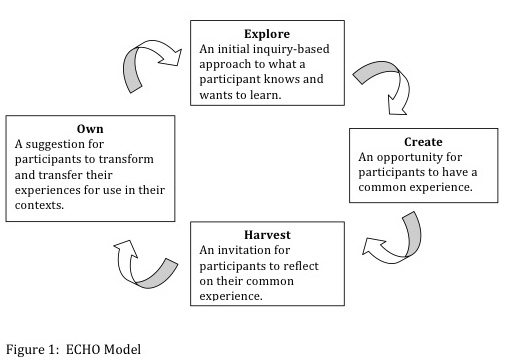I was on the way from the Portland airport to my Dad’s place, being driven by a childhood friend who now runs a pick up and delivery business. We left the four lane and followed winding country roads on our way to Forest Grove, a small town at the base of the coast range in Oregon. We came to an intersection. There wasn’t a stop sign or a stop light but there in the middle of open fields was a beautifully landscaped round-about, two lanes wide. Down the road another half mile was another. Not the place you’d ever expect to find round-abouts. “Excuse me,” my friend said, “but that’s what people with education do.”
Read more ›CURRENT ARTICLE • March 10
OTHER RECENT ARTICLES
Principles of Accounting has the reputation of being a “hard and boring” course. It is difficult to motivate students to invest the time and effort necessary to succeed in the course. To meet this challenge, we have assembled a list of eight simple rules for keeping students focused and motivated. These rules are not original, and they aren’t just for those of us who teach accounting classes. Indeed, most of these time-honored suggestions apply to any course students find hard and boring, and we think that makes them broadly applicable.
Read More ›Academic dishonesty can come in a variety of forms. From roving eyes during exams to buying papers off the Internet to any number of other low or high-tech forms of cheating and plagiarism. Anyone who works in higher education is aware that this kind of thing goes on at colleges everywhere, and has for a long time. But if you want to know how often it occurs on your campus, a good place to start might be to ask the students.
Read More ›Online course design is crucial to student success. It should reflect the intended learning outcomes and provide enough guidance for students to easily navigate the course without being overly rigid so as to stifle the exploratory aspects of learning, says Mary Hricko, library director and associate professor of library and media services at Kent State University Geauga Campus and Twinsburg Center.
Read More ›We do tend to get carried away with lofty academic definitions—they are precise and detailed—but sometimes simple captures the essence in a much more compelling way. I’ve read all sorts of definitions for problem solving, most sounding something like this: “any goal-directed sequence of cognitive operations.” Fine, but put that definition alongside this one: “what you do when you don’t know what to do.” [Both of these definitions appear in the article referenced below and the functional definition is attributed to another source.]
Read More ›Despite the benefits of online education, there are inevitable frustrations as well. The tools online learners need to use take time to master and don’t always behave in intuitive ways. Waiting for a response to a question, work from another learner on a collaborative project, or feedback on an assignment also can be terribly frustrating.
Read More ›As educators we hear and heed Peter McLaren’s warning, “You can't teach people anything … You have to create a context in which they can analyze themselves and their social formations and lives.” 1 We believe the creation of this context must be our aim as educators, and this context must be balanced between theory and practice. In our pursuit to strike this balance, we believe that experiential education has the potential to assist our fellow educators in transforming their pedagogical practices to more deeply engage their students and improve learning outcomes.
Read More ›Sometimes when words get bandied about, their meanings become less precise and that loss of meaning is overlooked because we all think we know what the term means. Case in point: empower, as in empowered learners or empowering instructors. Some faculty object to the verb empower because they think it means students taking charge and making learning decisions best left to teachers.
Read More ›A new online course designed to help higher education faculty and staff recognize and mitigate disruptive and potentially dangerous student behavior is now available from Magna Publications. The six-part course, Campus Safety 101, focuses on "the four D's" of concerning behavior — distressed, disturbed, dysregulated and medical disability-based behavior — and how early and effective intervention can protect the campus community and enhance student success.
Read More ›Rebecca Arbisi, chair of the business department at State Fair Community College in Missouri, offers the following tips for improving the quality of threaded discussions:
Read More ›





